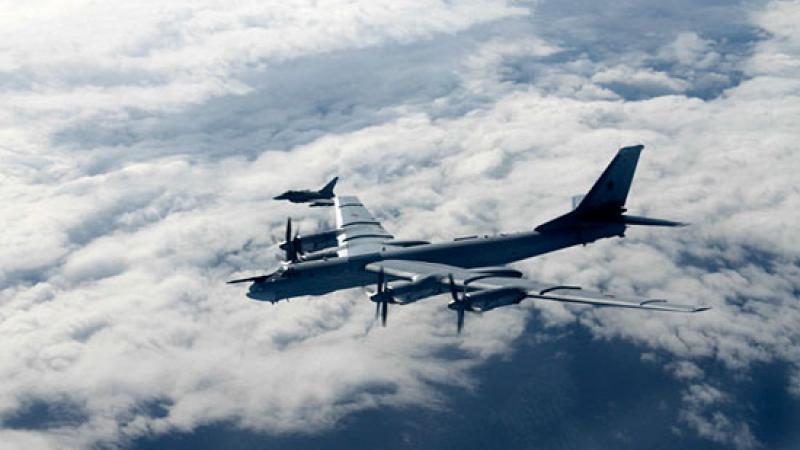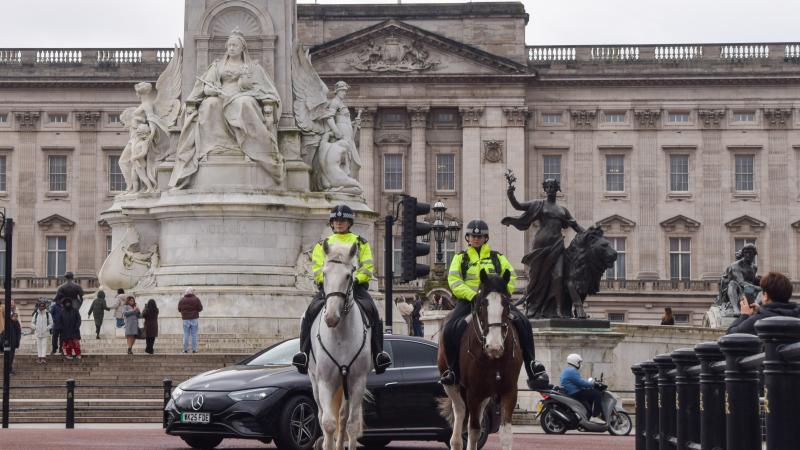Will Biden's failed deterrence in Ukraine embolden China? Some fear so
Former U.N. ambassador Bolton also warns Americans may not be ready for the economic pinch caused by Putin's countermeasures to U.S. sanctions.
John Bolton, the former U.N. ambassador and national security adviser, is warning that President Joe Biden's failure to deter Russia's attack on Ukraine through leaked intelligence and sanctions threats may have lasting impact on the world and embolden China to become more aggressive.
"We did not demonstrate enough strength, and we're paying for it today," Bolton told Just the News in a wide-ranging interview Thursday on the John Solomon Reports podcast in which he also challenged Biden's claims that the U.S. and Europe are united.
"I don't think it is an honest picture," Bolton said of Biden's claim of unity, citing differences with Germany over a Russian pipeline and other disputes simmering behind the scenes. "And I don't think it's been for some time."
The West is "trying to intimidate Putin, but he can see the splits just as we can," Bolton warned.
Bolton said it was too early to tell whether Putin's ultimate goal from the ongoing military assault is to affect regime change in Ukraine, ousting President Volodymyr Zelensky in favor of a more Russia-friendly leader.
But he said the Biden administration's failure to take more aggressive action earlier, including sending military experts to help Ukraine prepare months ago, has created lasting consequences.
"People have to understand that the Biden policy has failed," he said. "The objective of the policy was to prevent a military attack on Ukraine. And that's what we're seeing today. All the leaked intelligence didn't work. All of the threatened sanctions didn't work."
Bolton, a security hawk who served as U.S. ambassador to the U.N. under George W. Bush and national security adviser to Donald Trump, said the Biden approach failed for two reasons.
"First, I don't think Biden had credibility, not after the catastrophic withdrawal from Afghanistan this summer, and not after failing to respond to Russian incursions in Georgia and Ukraine before" in 2008 and 2014, respectively, Bolton argued.
"And not only was his threat not credible, the sanctions he talked about were not strong enough," he added.
He said a bigger concern is that China might now be emboldened to take more aggressive action against U.S. ally Taiwan and assert more power in the South China Sea based on Biden's handling of the Ukraine crisis.
"I'm very worried because we are so consumed now with Ukraine that [the Chinese] might take advantage of the timing," Bolton said. "But even if they don't do something soon, they are watching what Biden is doing with great care. Other than maybe Russia itself, nobody's watching more closely than China. And I'm very worried about the conclusions that they're drawing here."
Taiwan's air force on Thursday scrambled fighter jets to scare off nine Chinese aircraft that had entered its air defense zone, it’s defense ministry said.
Bolton said he does not believe Americans are prepared to weather the costs of the new conflict, especially if Putin takes sanctions countermeasures and cuts gas supplies to Europe in a bid to create an energy crunch that drives up already high gas prices.
"I hope, really, that we are prepared for the Russian countermeasures," he said. "Because at a time of high inflation — last I looked today, oil was over $95 a barrel — people are already worried about the price of gas at the pump. That's a transportation cost that figures into everything.
"Inflation was at 7.5% last month. High gas prices, as far as the eye can see, are not going to make consumers happy."
Bolton got some support in that assessment Thursday from one of his ideological opposites, former President Barack Obama, who warned Russia might seek to impose a price on the West through geopolitical energy warfare.
"There may be some economic consequences to such sanctions, given Russia's significant role in world energy markets," Obama said. "But that's a price we should be willing to pay to take a stand on the side of freedom.
Bolton said Putin's motivation with his latest aggression is rooted in his historical passion to reconstitute the old Soviet Union or the Russian empire while weakening NATO in his backyard.
"He's fulfilling a strategy that he began really back in 2005, when he said the breakup of the Soviet Union was the greatest geopolitical catastrophe of the 20th century," Bolton explained. "And I think clearly since then he's been working in different ways to put it back together, or to put it a different way, to certainly reestablish Russian dominance in the space of the former Soviet Union.
"He invaded Georgia in 2008. He invaded Ukraine once before in 2014. And now he's at it again, and it's related to his second major strategic objective, which is weakening NATO. For Putin, it's kind of a one on one relationship, a weaker NATO is a stronger Russia."
Bolton said it was too soon to tell whether Putin would seek regime change and capture the Ukrainian capital, Kyiv.
"I don't think we know the answer to that yet," he said. "My own sense is that he would love to find a way to destabilize Zelensky, his government, to push it out of office, if he could put in somebody more favorable to Russia."I don't think he's going to go for the whole country. My feeling has been that what he would like to see is more effective Russian control over territory in the east of the country. And in the southern part of Ukraine, along the north coast of the Black Sea."















